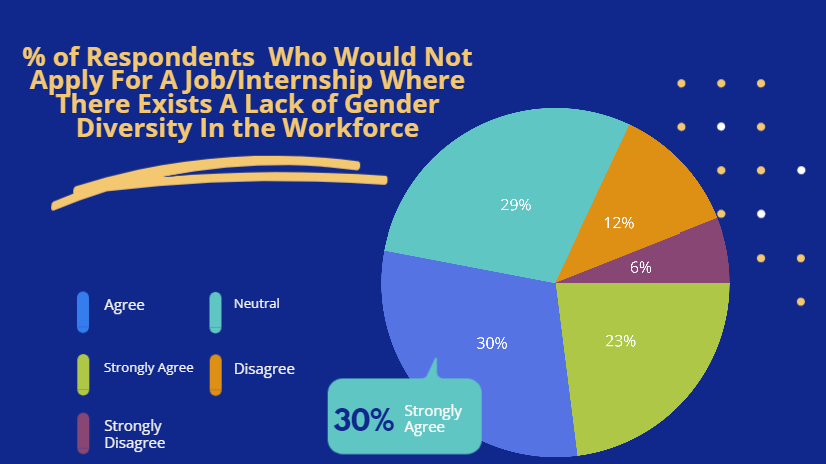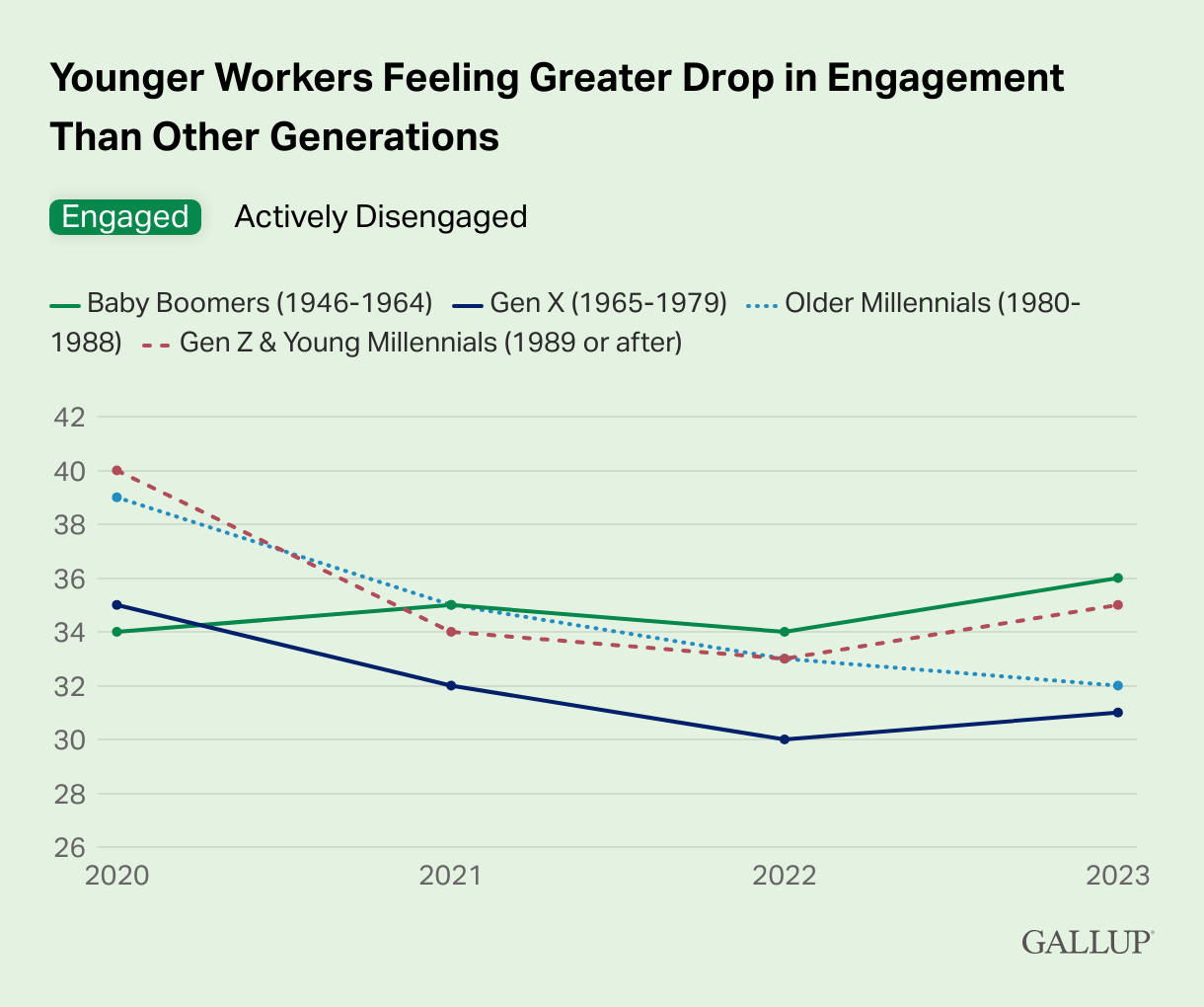Supporting Gen Z Employees: Navigating Mental Health and Engagement in a Post-Pandemic Workforce

Addressing Loneliness and Mental Health: Strategies for Supporting the Newest Workforce Generation
Gen Z is deeply invested in evolving workplace policies and benefits and improving their workplaces for the better. In fact, more than 75% have advocated for a stronger focus on this and are more likely to campaign for diversity and inclusion programs compared to the general population, according to Calm Business’ global 2024 Voice of the Workplace Report.
However, Gen Z is also our loneliest generation yet, assumably because they grew up and entered the workforce during a global pandemic. Calm Business reported that searches regarding “loneliness” on the Calm wellness app from 2021 to 2023 doubled, likely due to the isolation of remote work.
They aren’t alone with their spike in mental health concerns. In the 2024 Voice of the Workplace Report, 69% of all employees say their mental health has stayed the same or worsened in the past year. 61% of employees mentioned feeling down, depressed, or hopeless, while 81% of employees reported struggles with nervousness, anxiousness, and stress.
Still, nearly three-quarters of Gen Z respondents reported feeling down or depressed, and an astounding 90% said they experienced anxiety and stress on a regular basis.

So how do senior leadership, managers, and even their fellow teammates support and mentor our youngest colleagues?
First of all, remember how it was for you entering the workforce for the first time. I personally remember feeling overwhelmed and stressed trying to get up to speed with inadequate training and the ever-present pressure to “get it right the first time around.”
Gen Z is currently struggling the most with stress, anxiousness, depression, and loneliness. Senior staff and supervisors should actively invite them and their voices into team discussions and seek feedback on the company’s efforts in culture, engagement, and benefits. Gen Z are very passionate about equality, change, and improving eco-friendly practices. In fact, Forbes reported that they feel so passionately about these ideals that, according to a study by Handshake, “around half of Gen-Z workers would consider leaving a job if they perceived a lack of equity.”

Calm Business recommends in the 2024 Voice of the Workplace Report that organizations should “offer digital mental health self-care tools and adequate digital/in-person therapy support to help [employees] manage their mental health challenges.”
Still, according to a Gallup Poll released in February of this year, “the younger group of millennial and Gen Z employees (born 1989 or later) have experienced a five-point decline in engagement, from 40% to 35%, while the percentage of actively disengaged employees has increased by one point, from 13% to 14%.”

Remote/hybrid work, while extremely popular amongst the older generations, is likely taking a toll on the newer workforce. They’re missing out on the hands-on mentoring opportunities that benefited the generations before them and may not receive the important social and bonding opportunities associated with a traditional office.
As indicated by Gallup Polls, leaders and managers should adopt strategies tailored to attract, engage, and retain younger employees in our post-pandemic landscape. They should aim to cultivate a culture founded on trust, connection, and equal opportunities for growth.
Supporting managerial roles is crucial, with Gallup reporting that 70% of managers reported they lack proper training for hybrid workforce management. It is imperative to prioritize coaching employees through clear goals, accountability, and regular one-on-one mentorship opportunities.
Calm Business suggests HR leaders consider creating social clubs around key hobbies and/or setting up mentorship programs to provide additional mentoring for new staff, whether in the office or remotely.
Furthermore, personalized learning and development opportunities should be provided, increased flexibility options for full-time on-site employees should be considered, and collaboration and innovation should be encouraged by actively seeking and implementing younger workers’ ideas and opinions.
Through these actions, leaders and managers can foster engagement and loyalty among younger employees, enhancing overall performance and retention, thus ensuring employee growth and well-being and increasing retention initiatives in this evolving post-pandemic landscape.





